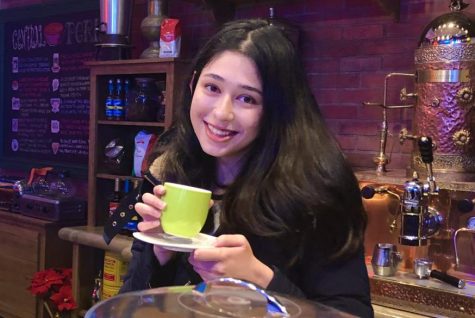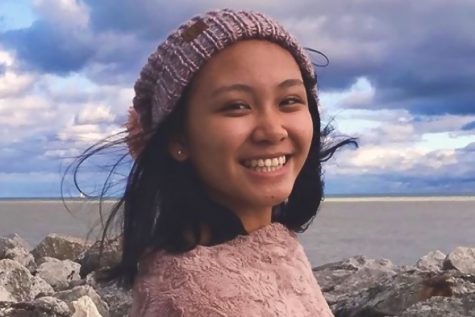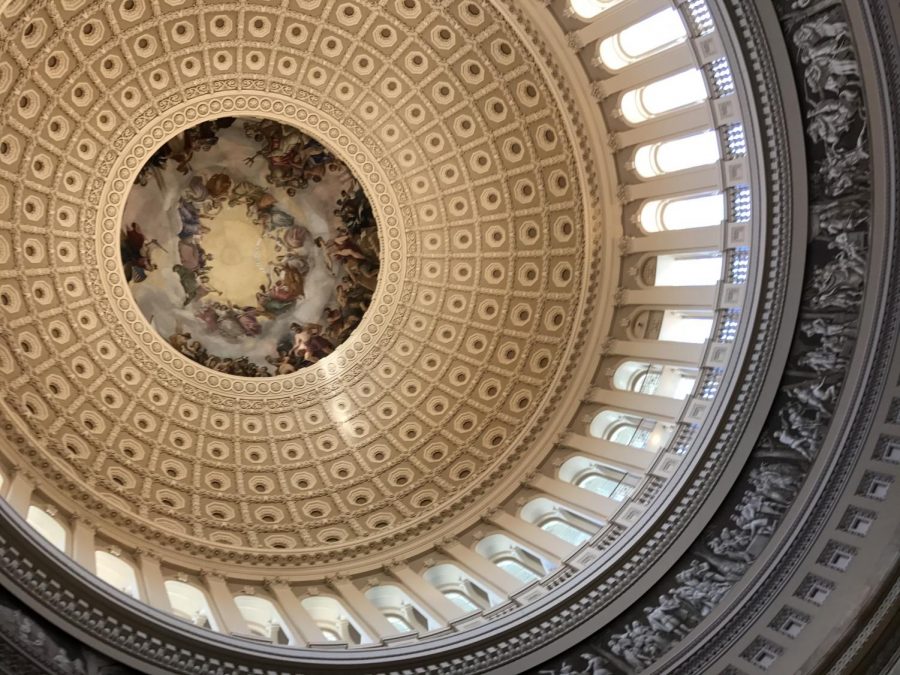From insurrection to inauguration, Mustangs share thoughts on state of democracy
As the American people and the Biden administration opens a new chapter, the call for unity and progress continues.
The Confederate flag waving through the Senate chambers. An officer crushed between a door frame and rioters. A fist was thrown in the air. These were all pictures publicized by the press during the insurrection on the Capitol building on Jan. 6. Two weeks later, Joe Biden was inaugurated as the United State’s 46th president, inheriting a country upended by division. As America barrels through political upheaval, students discuss the implications of these events, inspiring conversations about leadership, protest, and race. Within the discourse is the same underlying question, “What kind of future are young Americans inheriting?”
“The storm on the U.S. Capitol is the culmination of four years of polarization, lies, and violence which stems from something that has been in this country for much longer,” senior Ijeoma Ogbonna said. “I was disappointed, but I wasn’t surprised. With the way this country has been going, it’s sad it came to this, but it was almost inevitable.”
Ogbonna’s concern about the country’s growing political divide is real. According to a poll conducted by the Independent, over the past couple of months, America experienced “record-low patriotism” as a result of a “sharply polarized political climate.” As the U.S. grows more divided, people’s confidence in government institutions like the military weakens. Historical events such as the insurrection push the country into two extreme ends of the spectrum, permeating us versus them mentality that prevents growth, progress, and open conversation.
“I feel like this [insurrection] was an issue of extremists and non-extremists,” senior Chris Gomez said. “One of the most pressing issues of our nation today is people constantly associating the worst of a group with the whole.”
With inflammatory events such as the insurrection, divisiveness is bound to happen. From the way the media presented the insurrection, to the phrases news anchors used, ignited arguments on whether this was a “protest” or a “riot.”
“These people entered the capitol building in what can only be described as an attempted coup,” senior Sebastián Segarra said. “They attempted to abduct, murder, or otherwise harm members of Congress in hopes that Donald Trump would remain president.”
Clearly, the gravity of this event cannot be ignored. It was a revolt against the U.S. government that resulted in the death of five people, including a capitol police officer, according to CNN. Simply put, the insurrection was an act of violence. Some students argue that it was not unfamiliar to the protests this country witnessed before.
“This riot was dangerous,” Gomez said. “Anyone who thinks that they have the right to disobey the law, destroy property, and trespass just because something didn’t go their way is dangerous. But where was all the talk with the Black Lives Matter lootings? It seems like the guys who stormed the capital are being treated more like terrorists than the protesters who did the same thing on a state level.”
The way the media portrayed each BLM protest had a huge impact on the way students viewed them.
“When Americans all over the country came together to protest systemic racism and police brutality, the president called them thugs, the media portrayed them as violent,” Segarra said. “No better example of this can be seen than the event at Lafayette Square when Donald Trump ordered for the police to launch tear gas at peaceful protesters so he could walk up to a church and take a picture with an upside down bible.”
Ogbonna, who attended the Black Lives Matter protests over the summer, elaborates on how news outlets covered them.
“It was definitely disheartening to see this is where we have reached as a country,” Ogbonna said. “I could see how we were treated because of a small group of rioters and looters, as opposed to those people storming the Congress.”
Media coverage of the insurrection was one of the many talking points between teachers and students the following day. According to Ogbonna, her teachers encouraged productive conversations with their students about political divides.
“Social studies teachers didn’t have much of a problem addressing [the insurrection],” Ogbonna said. “In other classes, it might’ve been a weird turn for [the teachers]. I know it’s hard for teachers to get ‘political,’ but this isn’t a matter of politics, but democracy. What happened that day should be denounced. It isn’t a matter of offending some students because of political ideology because this isn’t about partisan problems, but the undermining of our democracy.”
Although to students, the very concept of democracy seems to be changing.
“This coup really did open my eyes to what this country is,” Segarra said. “If this country is to move forward, we must not only fix the damage but work to strengthen our institutions. The floodgates have been opened, and it is up for all of us to make sure that this never happens again.”
The insurrection on Capitol Hill made students uneasy and worried about the future. Two weeks later, in Biden’s inaugural address, he promised to “end this uncivil war that pits red against blue, rural versus urban, conservative versus liberal.” Biden’s inaugural address focused on mending the divide, and most of all, providing hope.
“Biden’s inaugural address really gives a lot of hope for the future as he actually addressed the bipartisan issue of the nation as one of his first to fix issues,” Gomez said. “Of course Joe Biden cannot change anyone. But he can offer them an outstretched hand.”
Ogbonna believes this is the first step forward to creating a more unified America.
While Biden’s inauguration may not provide the change some students campaigned for, it does bring a change of pace to modern politics.
“Although our part in electing Biden is done, we still have much work to do in making sure he is held accountable and can work to make life in this country so much better for all of us,” Segarra said. “At the very least, I hope for a move beyond Obama era politics and strong progressive policies from wherever they may come.”
Ogbonna spoke about the progressive policies she wishes Biden will usher into Congress.
“As a prospective public health major and having a nurse for a mom, I hope for a better emphasis on public health and our current healthcare system,” Ogbanna said. “Much of that has been limited to partisan contention about the Affordable Care Act over the years, but with the COVID-19 pandemic, many have realized how healthcare is so much more vast than that and we need to start doing more for our medical professionals. Hopefully, their voices will now be emphasized going forward.”
Within these conversations about the political divide, about America’s future, about violence and peace, is the same underlying thing– hope for a brighter future.
“We’re in a very fragile state, and Americans know that,” Ogbonna said. “I know many on the more liberal wing of the Democratic party will feel that Biden might be too moderate and not pushing for radical changes that need to happen now along with too much of an emphasis on bipartisan collaboration, but we can’t move forward without mending the divisiveness that’s holding us back.”

Iman is a Senior and this is her first year on staff. She is a headlines reporter for The Stampede. She loves watching TV, hanging out with her friends...

Leland is the Editor-in-Chief of Metea Media. She was a sports Reporter her sophomore year and the sports Editor in her junior year. After spending two...



